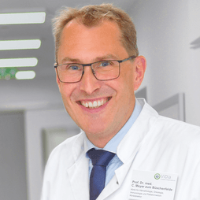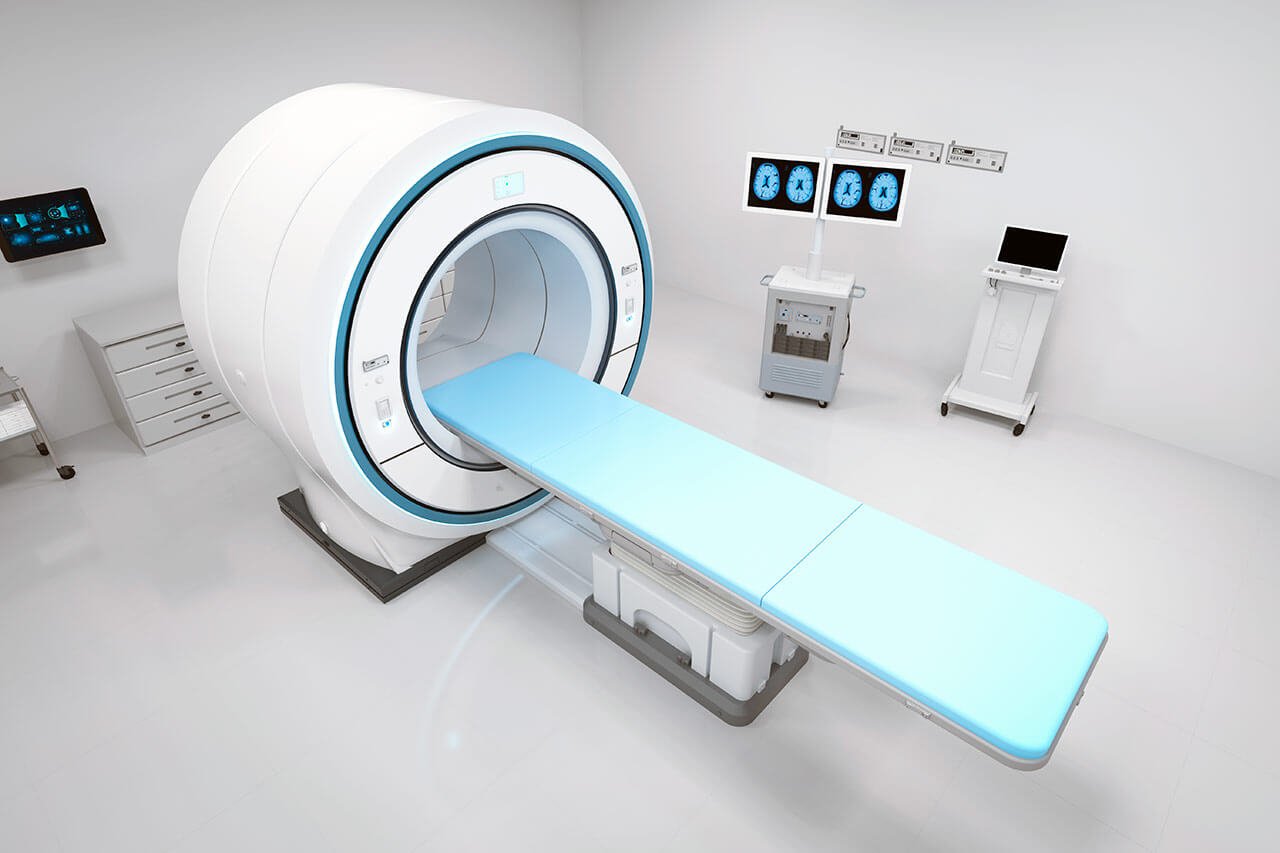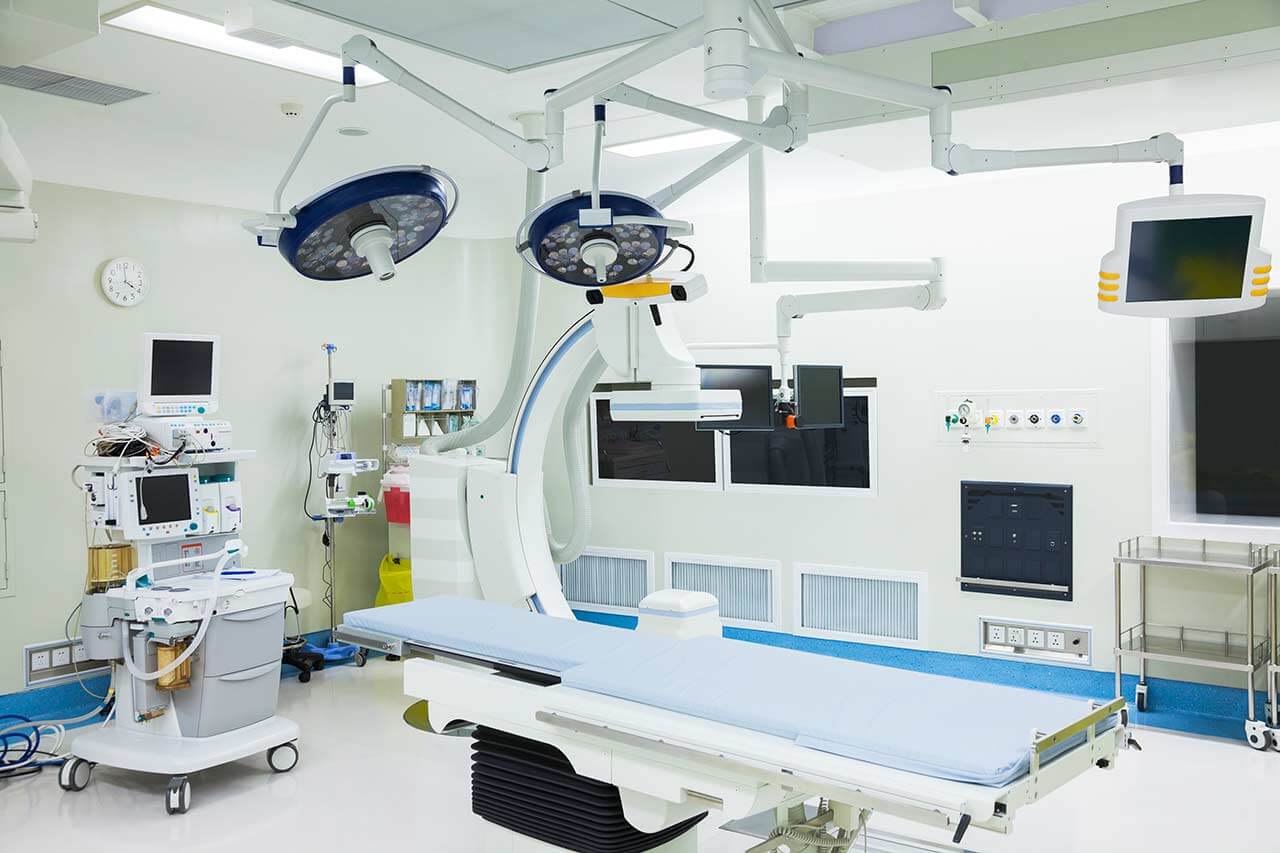
About the Department of Hematology and Oncology at ViDia Hospital Karlsruhe
The Department of Hematology and Oncology at the ViDia Hospital Karlsruhe treats solid malignant tumors of various localizations, blood cancer, and benign hematopoietic pathologies. A qualified team consisting of oncologists, hematologists, psycho-oncologists, physiotherapists, and experienced nursing staff takes care of the health of patients. Whenever required, doctors from related medical fields are also involved in the therapeutic process. All specialists make every effort to provide patients with effective and personalized medical services while surrounding them with care. The department is part of the Cancer Center of the hospital, which is certified according to the requirements of the German Cancer Society (DKG). The department prefers a multidisciplinary approach, holding weekly tumor boards with the participation of oncologists, hematologists, radiation therapists, and surgeons, as well as highly specialized experts in gynecology, urology, gastroenterology, pulmonology, etc. The department's specialists have in their arsenal modern treatment methods for malignant diseases, including chemotherapy, targeted therapy, immunotherapy, hormone therapy, and many others. Patients with advanced stages of cancer are offered palliative care aimed at alleviating pain syndrome and ensuring a decent quality of life. The department is headed by Prof. Dr. med. Christian Meyer zum Büschenfelde.
In the field of hematology, the primary focus is on the treatment of malignant diseases, such as acute leukemias, lymphomas, and multiple myeloma. Acute leukemia is a malignant disease of the hematopoietic system primarily localized in the bone marrow. Cancer develops rapidly, causing fatigue, severe weakness, fever, shortness of breath, and hemorrhages. The key diagnostic methods for acute leukemia include a complete blood count, including the biochemical profile, and bone marrow puncture and biopsy with follow-up histological examination of the obtained biological material. Should the diagnosis be confirmed, doctors immediately begin to elaborate an optimal treatment regimen, which is most often based on chemotherapy. Depending on the particular clinical case, treatment may also include targeted therapy, radiation therapy, and immunotherapy. In the most complex cases of acute leukemia, a bone marrow transplant is the only effective method of curing the cancer.
The department has also gained vast experience in providing medical care to patients with Hodgkin's and non-Hodgkin's lymphomas, including multiple myeloma. These malignancies affect the lymphatic system of the human body. The signs of lymphomas may include painless enlargement of lymph nodes in the neck, armpits, or groin, general weakness, rapid fatigue, unexplained fever, and weight loss. During the diagnostic stage, blood tests, a lymph node biopsy followed by histological examination, a bone marrow puncture, etc. are prescribed for patients. If diagnostic results confirm the presence of lymphoma, the treatment planning phase begins. In the early stages of the disease, the department's doctors often use only chemotherapy, and in advanced cases of cancer, additional procedures such as targeted therapy, immunotherapy, and radiation therapy may be prescribed.
The department's team of oncologists regularly admits patients with colon cancer. This type of cancer is the second most common oncopathology among men and women worldwide. The insidiousness of colon cancer is that in the early stages, when the pathology responds well to treatment, it is asymptomatic, so the patient may not even guess about the presence of a colon tumor for years. If specialists manage to detect the disease in its early stages, it can often be cured via surgical resection and, in some cases, using an endoscopic procedure. If colon cancer has reached its advanced stages, the patient will have to undergo ultrasound, CT, and/or MRI scanning to assess the spread of the cancer process and prescribe the most effective treatment. In the advanced stages of colon cancer, extensive resections are often performed, including the removal of adjacent tissues. Chemotherapy is an integral part of the therapeutic process in such cases. The department's specialists also widely use localized treatment methods for targeted effects on the malignant tumor and/or metastases. These include radiofrequency ablation, transarterial chemoembolization, and stereotactic radiation therapy.
In cooperation with gynecologists, the department's oncologists provide care to women with cancer of the reproductive system, including cervical cancer, uterine cancer, ovarian cancer, vulvar cancer, and vaginal cancer. For patients with such cancers, the first-line treatment is most often a surgical intervention, during which tumor resection or removal of the affected organ with adjacent tissues is performed, depending on the cancer's spread. Surgery is usually complemented by chemotherapy and/or radiation therapy.
The department specializes in the diagnostics and treatment of the following diseases:
- Hematology
- Malignant hematopoietic diseases
- Acute leukemia
- Hodgkin's and non-Hodgkin's lymphomas
- Multiple myeloma
- Benign hematopoietic diseases
- Anemia
- Hemophilia
- Thrombocytopenia
- Myelodysplastic syndrome
- Blood clotting disorders
- Malignant hematopoietic diseases
- Oncology
- Colon cancer
- Stomach cancer
- Pancreatic cancer
- Lung cancer
- Female reproductive system cancers
- Uterine cancer
- Cervical cancer
- Ovarian cancer
- Vaginal cancer
- Vulvar cancer
- Male reproductive system cancers
- Prostate cancer
- Germ cell testicular tumors
- Urinary tract cancers
- Kidney cancer
- Bladder cancer
- Ureteral cancer
- Other diseases
The department's therapeutic options include:
- Chemotherapy
- Targeted therapy
- Immunotherapy
- Hormone therapy
- Monoclonal antibody therapy
- Palliative care
- Other treatment methods
Curriculum vitae
Higher Education and Professional Career
- 1988 - 1990 Medical studies, Christian Albrecht University of Kiel.
- 1990 - 1994 Medical studies, Johannes Gutenberg University Mainz.
- October 1994 Admission to medical practice.
- 1994 - 1996 Resident Physician (specialization: immunology and microbiology), Bernhard Nocht Institute for Tropical Medicine in Hamburg.
- 1996 - 1997 Assistant Physician (specialization: immunology and microbiology), Bernhard Nocht Institute for Tropical Medicine in Hamburg.
- 1997 - 2001 Assistant Physician, Department of Hematology and Oncology, University Hospital Rechts der Isar Munich.
- 2001 - 2003 Research Fellow, Yale University, New Haven, USA.
- 2003 - 2006 Assistant Physician, Department of Hematology and Oncology, University Hospital Rechts der Isar Munich.
- November 2005 Board certification in Internal Medicine.
- December 2005 Habilitation, Technical University of Munich.
- 2007 - 2008 and 2010 Attending Physician, Department of Hematology and Oncology, University Hospital Rechts der Isar Munich.
- 2008 Certification by the European Society for Medical Oncology (ESMO).
- November 2009 Board certification in Hematology and Oncology.
- September 2010 - March 2017 Attending Physician, Department of Hematology and Oncology, Asklepios Hospital Altona in Hamburg.
- March 2012 Extraordinary Professorship, Technical University of Munich.
- 2013 and 2018 Repeated certification by the European Society for Medical Oncology (ESMO).
- September 2016 Specialization in Palliative Care.
- 2017 Study of Good Clinical Practice Guidelines (ICH GCP).
- Since April 2017 Head Physician, Department of Hematology and Oncology, ViDia Hospital Karlsruhe.
Photo of the doctor: (c) ViDia Kliniken Karlsruhe





